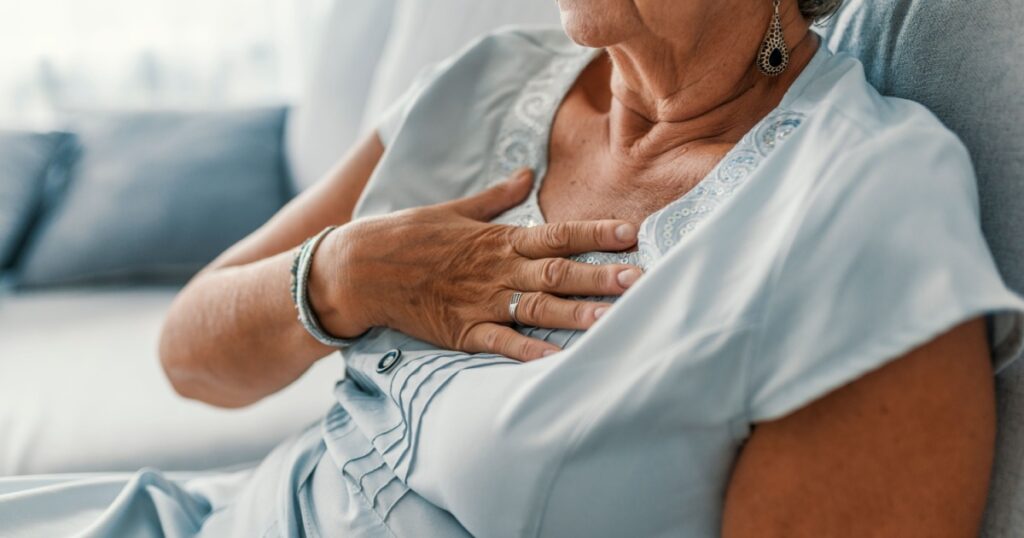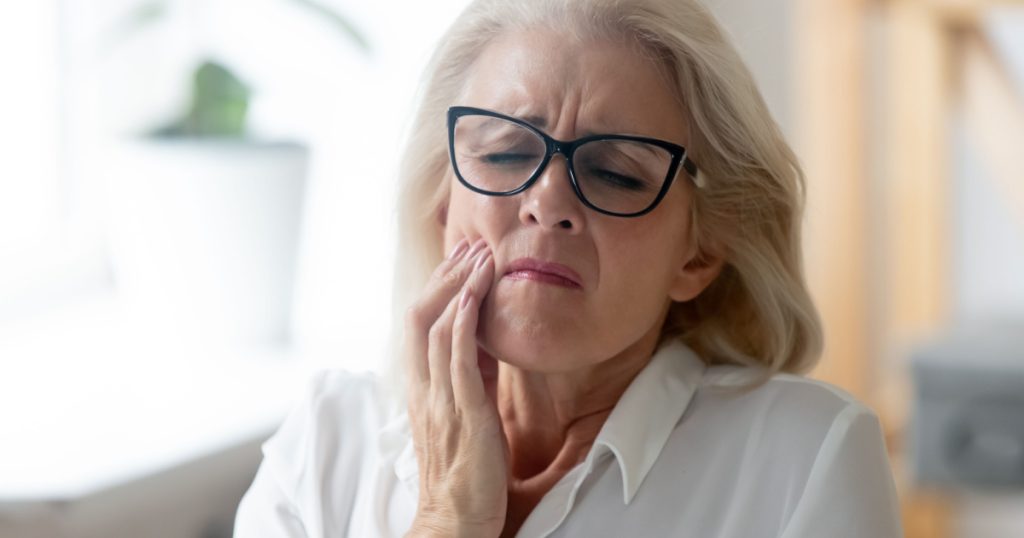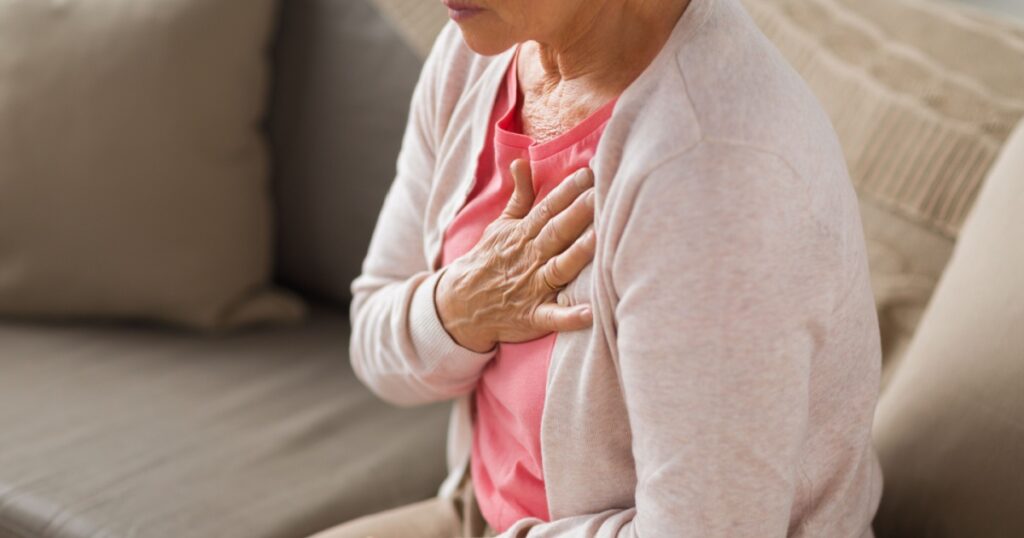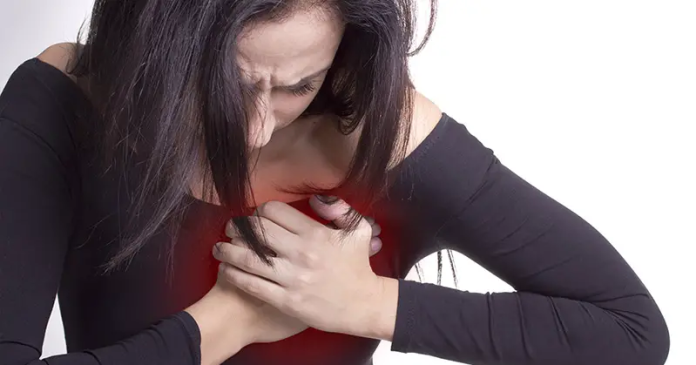In recent decades, scientists have realized that heart attack symptoms can be quite different for women than for men. The journal Circulation published the findings of a multicenter study of 515 women who’d experienced a heart attack. The most frequently reported symptoms didn’t include chest pain. Instead, women reported unusual fatigue, sleep disturbances, and anxiety. Nearly 80 percent reported experiencing at least one symptom for more than a month before their heart attack. In a survey published in the journal Circulation, only 65 percent of women said they’d call 911 if they thought they might be having a heart attack.
Symptoms of a heart attack in women include:

Even if you’re not sure, get emergency care right away. Base your decision on what feels normal and abnormal for you. If you haven’t experienced symptoms like this before, don’t hesitate to get help. If you don’t agree with your doctor’s conclusion, get a second opinion.
Unusual fatigue lasting for several days or sudden severe fatigue

Profound and unexplained fatigue or a sudden decrease in energy levels can sometimes be a warning sign of a heart attack in women.
Sleep disturbances

Sleep disturbances, such as insomnia, unusual restlessness, or waking up frequently during the night, have been reported as warning signs in some women prior to a heart attack.
Anxiety

Some women may experience a sense of impending doom, anxiety, or a feeling that something is terribly wrong during a heart attack.
Lightheadedness

Feeling dizzy or faint is another symptom that may occur during a heart attack.
Shortness of breath

Feeling breathless or having difficulty catching your breath can be a symptom of a heart attack. This may occur with or without chest discomfort.
Indigestion or gas-like pain

Some women may feel nauseated or may vomit during a heart attack, which can be mistaken for other gastrointestinal issues.
Cold Sweats

Cold and clammy skin, along with sweating, can accompany a heart attack, especially in women.
Jaw pain or pain that spreads up to your jaw

Women may experience pain or discomfort in areas other than the chest, such as the neck, jaw, shoulder, back, or stomach. This pain may radiate from the chest and is often a more subtle symptom.
Pressure or pain in the center of your chest, which may spread to your arm

While chest pain is a common symptom in both men and women, women may experience different types of chest discomfort. It can be described as a squeezing, fullness, pressure, or burning sensation in the chest that may come and go.
Heart attack in women over 50

Women experience significant physical changes around age 50, the age when many women start to go through menopause. During this period of life, your levels of the hormone estrogen drop. Estrogen is believed to help protect the health of your heart. After menopause, your risk of heart attack increases. Unfortunately, women who experience a heart attack are less likely to survive than men. Therefore, it becomes even more important to remain conscious of your heart health after you go through menopause.
Remain aware of these symptoms and schedule regular health checkups with your doctor. There are additional symptoms of a heart attack that women over the age of 50 may experience. These symptoms include:
- severe chest pain
- pain or discomfort in one or both arms, the back, neck, jaw, or stomach
- rapid or irregular heartbeat
- sweating
Silent heart attack symptoms

A silent heart attack is like any other heart attack, except it occurs without the usual symptoms. In other words, you may not even realize you’ve experienced a heart attack.
In fact, research from Duke University Medical Center has estimated that as many as 200,000 Americans experience heart attacks each year without even knowing it. Unfortunately, these events cause heart damage and increase the risk of future attacks. Silent heart attacks are more common among people with diabetes and in those who’ve had previous heart attacks.
Symptoms that may indicate a silent heart attack include:

- mild discomfort in your chest, arms, or jaw that goes away after resting
- shortness of breath and tiring easily
- sleep disturbances and increased fatigue
- abdominal pain or heartburn
- skin clamminess
After having a silent heart attack, you may experience more fatigue than before or find that exercise becomes more difficult. Get regular physical exams to stay on top of your heart health. If you have cardiac risk factors, talk to your doctor about getting tests done to check the condition of your heart.
regular

Sources
- “Did you know heart attacks have beginnings?” Deputy Heart Attack. 2007.
- “Silent heart attack: What are the risks?” Mayo Clinic. Rekha Mankad, M.D.
- “Heart attack symptoms in women.” Heart.
- “Women’s early warning symptoms of myocardial infarction.” NCBI. McSweeney JC, et al. 2003
- “Fifteen-year trends in awareness of heart disease in women: Results of a 2012 American Heart Association national survey.” Journals. Mosca L, et al. 2013.
- “New imaging technology reveals prevalence of “silent” heart attacks [press release].” Eurekalert. 2009.
- “Warning signs of a heart attack.” Journals. JP Ornato, et al. 2001.
- “Heart attack (myocardial infarction).” Cleveland Clinic. 2019.

